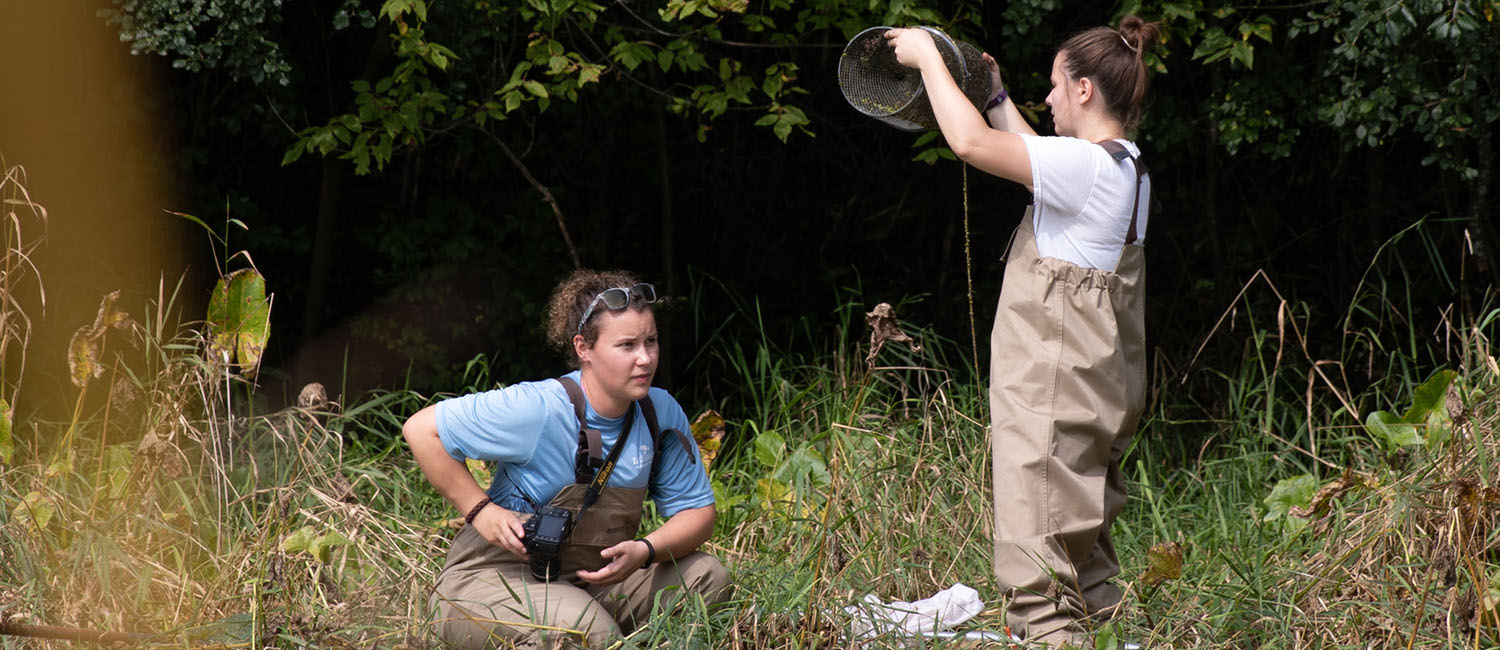Courses Offerings
The Freshwater Collaborative of Wisconsin network offers a variety of courses and lab and field experiences that will help you broaden your skills, perspectives and professional networks.
A number of water-related courses are available to undergraduates students throughout the Universities of Wisconsin. Courses may be in-person, hybrid or fully online. Work with your advisor to determine how a Collaborative course may fit into our academic degree plan and what you will need to do to enroll and transfer credits.
You can also enhance your skills by participating in lab and field experiences in rural and urban settings at campuses throughout the state, including on the Mississippi River, Lake Superior, Lake Michigan and many rivers, streams and wetland areas.
Summer 2024
Fish Culture Techniques and Practices, FRSHWTR 650-001
This is a three-credit introduction to fish culture techniques with a focus on model fish (zebrafish) and aquaculture fish for food or conservation (Lake sturgeon, yellow perch, and walleye). Prerequisites: Bio Sci 150 (or equivalent), Chem 102 (or equivalent), graduate standing, or consent of instructor. Each class will include one-hour lectures and three-hour laboratory exercises. Taught by Dr. Dong Fang Deng at UWM’s School of Freshwater Sciences.
Students interested in this course can enroll via PAWS. Students not enrolled at UW-Milwaukee must enroll as a guest student.
More Information and Application
Fall 2024
Elements of Water, FRSHWTR 101-001
This course addresses the importance of water in biological, ecological, physical, climate and economic systems, and the consequences of distributing the natural water cycle.
This course meets the Natural Science General Education Requirement and is open to high school students enrolled in the Early College Credit Program.
UW-Milwaukee students interested in this course can enroll via PAWS. Students not enrolled at UW-Milwaukee must enroll as a guest student first.
Field Experimentation and Analysis in Freshwater Sciences, FRSHWTR 513/513G
Student learn comprehensive investigative procedures in freshwater ecology, focusing on interactive field and laboratory assignments. This course will meet at the UW-Milwaukee School of Freshwater Sciences, 600 E. Greenfield Avenue, Milwaukee, WI 53204.
Field trips are scheduled for September 19, October 3, October 10, and October 17, from 9:00 a.m.-5:00 p.m. Prerequisites: junior standing or greater, BioSci 150 (or equivalent), and Chem 102 (or equivalent); or graduate standing.
This course is open to students enrolled at any Universities of Wisconsin campus and to non-degree students. Students not enrolled at UW-Milwaukee must enroll as a guest student.
Introduction to Freshwater (BIO/EGR 119Q3)
Water is essential for all life and humans rely on freshwater for food production, industry, and multiple forms of recreation. The course provides an introduction to freshwater and the critical role it plays in supporting people and ecosystems. The class will be rooted in the signature question: How do people understand and create a more sustainable world? The fundamental learning outcome is to summarize and evaluate the ways freshwater is important to society and natural ecosystems. Students will achieve learning outcomes from presentations, readings, class discussions, and lecture, laboratory and field exercises.
Lectures are M/W/F, 10:20 a.m.-11:20 a.m.
Lab options are Tuesday, 1:20-4:20 p.m. or Thursday, 1:20-4:20 p.m.
Microbial Ecology, BIOL 312
This three-credit course will focus on the biology of microorganisms and microbial processes and their effects on other organisms and the environment, and the impact of these relationships on biogeochemical cycles. Students will explore how the environment shapes microbial communities and how microbes affect the environment while gaining hands on experience on topics related to metagenomics and microbial ecology techniques.

